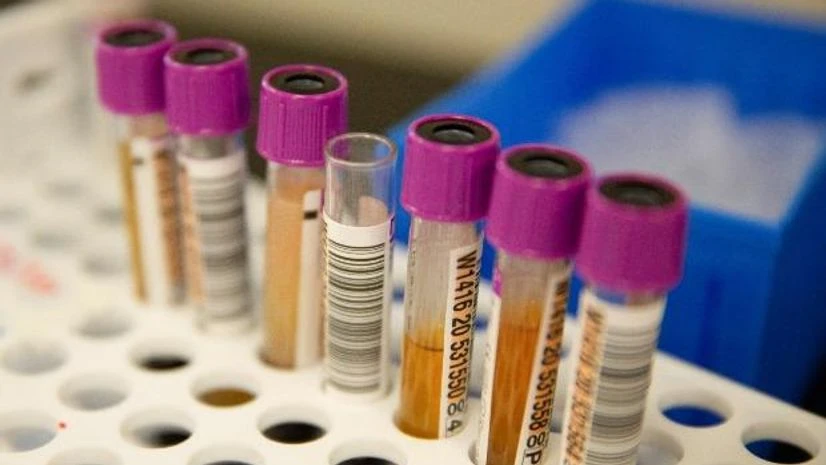Rapid antigen tests (RATs) for COVID-19 are cheaper and deliver quicker results but should be no more than an adjunct to the more reliable RT-PCR tests because of the potential for false negative results, say scientists.
TheUnion Health Ministry's move on Thursday to direct all states and union territories to mandatorily retest all symptomatic negative cases of RATs with RT-PCR is the right strategy, they said.
The ministry notedthat symptomatic cases tested negative by RATs are not followed up by RT-PCR testing in some large states. The idea is that no positive COVID-19 cases are missed.
Labelling RATs spuriously comforting, immunologist Satyajit Rath said it is also known that there are false negative outcomes in the tests.
ICMR (Indian Council of Medical Research) knew this all along and advised RAT-negative symptomatic people to be re-tested with RT-PCR tests, the scientist fromNew Delhi's National Institute of Immunology(NII) told PTI.
Also Read
Virologist Shahid Jameel added that RATs have a field sensitivity of 50-60 per cent and show many false negatives.
If someone has symptoms, he/she should be retested. This is the correct thing to do, Jameel told PTI.
The CEO of DBT/Wellcome Trust India Alliance, a public charity that invests in building biomedical sciences and health research framework, said RATsgive results in 30 minutes and help in many situations.
They can, for instance, be done before patients see doctors in hospitals, he said.
Though not foolproof, this is one way to protect the doctor at least 50-60 per cent of the time. The other advantage is low cost compared to RT-PCR, Jameel told PTI.
In June, the ICMR recommended the use of RAT kits for diagnosis of COVID-19 in containment zones and healthcare settings in combination with the RT-PCR test, citinghigh specificity but relatively low sensitivity of RATs.
The apex health body then said RAT kits will allow faster diagnosis without laboratory examination.
The RAT tests were nonetheless introduced because RT-PCR tests were not available in large enough numbers, especially since they needed a lot of equipment and high skill levels to be performed, Rath said.
Since June, India's COVID-19 graph has spiked sharply. On Friday, the caseload crossed 45 lakh and the death toll climbed to76,271 with a record96,551 infections and 1,209 fatalities being reported in a day.
According to Rath, RT-PCR tests are more expensive than antigen tests, which are better than nothing -- and that was the apparent alternative a few months ago.
While rapid antigen tests detect viral protein, the RT-PCR tests detect viral RNA or its genetic material.
RT-PCR tests 'amplify' viral RNA while detecting it, but antigen tests do not do any such amplification of the detected viral protein, the experts noted.
Because of this amplification step, RT-PCR tests for viral RNA are more sensitive than antigen tests, they said.
There are not enough RT-PCR tests and they take a long time to do in specialised centres. So the world is using RA tests for the same reason that India is using them, and with similar somewhat spuriously comforting rationale, Rath explained.
He said there are far less expensive and cumbersome ways of detecting viral RNA than RT-PCR without losing the sensitivity advantage, but very few companies are making those sorts of kits.
I am amazed that biotech companies in India have not yet seen this critical gap and have not filled it. I hope that this will change for the better, he added.
Rath explained that most infected people seem to have fairly large amounts of virus so the wishful expectation was that RAT tests would be sensitive enough to detect the infection. But this is not necessarily the case.
Another version of this argument is that RAT tests detect the 'most' infectious people because people who are RAT-negative but RT-PCR test-positive have low amounts of virus. This may still be correct, said the immunologist.
Another advantage with RAT tests, Rath said, is that they need less in terms of specialised chemicals, equipment and even skills so they are cheaper and easier to do. A large number of tests can be done at many locations.
All of these feel like advantages in an active spreading epidemic, he noted.
Rath said the formal ICMR recommendation has always been to test people who are 'negative' with a 'rapid antigen test' with an RT-PCR test, at least for symptomatic individuals.
So this exhortation by the health ministry seems more or less in line with that original position, he said.
Globally, the situation is the same as that in India.
The US Center for Disease Control in its guidance for using rapid antigen tests for COVID-19 states thatantigen tests for SARS-CoV-2 are generally less sensitive than viral tests that detect nucleic acid using RT-PCR.
According to a study published in June, a rapid antigen test is 10 fold less sensitive than RT-PCR for detection of SARS-CoV-2 virus.
Hopefully, this situation will change for the better as other, smarter tests come into the market, Rath added.
(Only the headline and picture of this report may have been reworked by the Business Standard staff; the rest of the content is auto-generated from a syndicated feed.)

)
